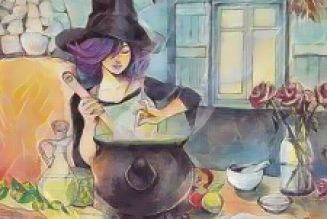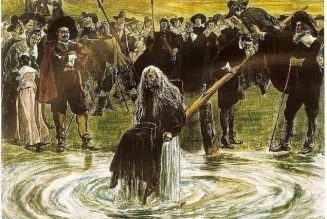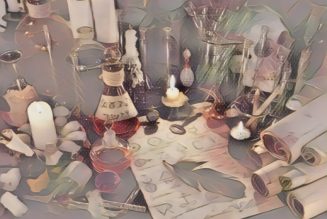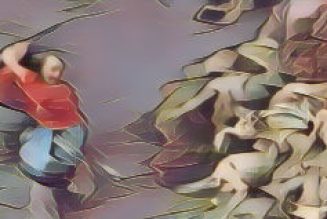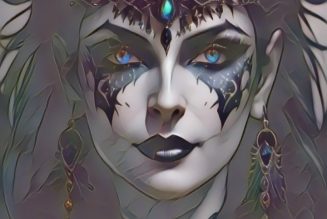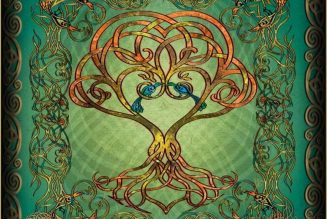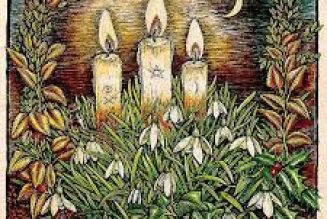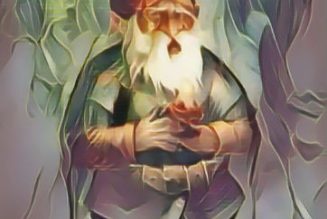As noted above, one of the things people find issue with when it comes to this festival, is the idea of Hekate protecting the harvest/crops. Many people find the idea of Hekate and agriculture to be, well, just wrong. Some also find it difficult to understand why Hekate would be called on for protection. So we need to look at these aspects of the festival as well – do they fit Hekate or not?
“Hecate, the symbol of her varying phases and of her power dependent on the phases. Wherefore her power appears in three forms, having as symbol of the new moon the figure in the white robe and golden sandals, and torches lighted: the basket, which she bears when she has mounted high, is the symbol of the cultivation of the crops, which she makes to grow up according to the increase of her light: and again the symbol of the full moon is the goddess of the brazen sandals.
Or even from the branch of olive one might infer her fiery nature, and from the poppy her productiveness, and the multitude of the souls who find an abode in her as in a city, for the poppy is an emblem of a city. She bears a bow, like Artemis, because of the sharpness of the pangs of labour.
And, again, the Fates are referred to her powers, Clotho to the generative, and Lachesis to the nutritive, and Atropos to the inexorable will of the deity.
Also, the power productive of corn-crops, which is Demeter, they associate with her, as producing power in her.
In this one reference we can see that She is indeed linked to agriculture, as the waxing moon, “symbol of the cultivation of the crops” and also in Her association with Demeter, “the power productive of corn-crops”. This is only one reference, but sometimes that is all you need.
Protection is actually a more common thing when it comes to Hekate. The offerings given on the Deipnon are all about asking Her for protection – as well as being just offerings to Her, the dead and Her hounds. One of Her epithets is Apotropaios, which means “averter” and is in reference to Her being a protector, averting evil. She is also named Medousa, Protector and Pylake, Guard, Who Keeps Watch.













